#Clifford Thornton
Text
youtube
So in the West, the predominantly influential form ICM was Hindustani (North Indian) music. This recording comes from the Nonesuch release ‘Pallavi: South Indian Flute Music’, which was a kind of classic amongst jazz musicians and a kind of introduction to Carnatic music for many of them (to a degree—-L Shankar plays on it, a few years after already having played on Clifford Thornton’s Communications Network and Archie Shepp’s Attica Blues). Funny for me—-the allmusic review was written by Eugene Chadbourne (!):

I am really, really far from being *particularly* knowledgeable about Carnatic music, but it is a great album, beautiful music, and kind of like Ravi Shankar’s ‘Improvisations on Pather Panchali’ and ‘Three Ragas’ are to Hindustani music a really great introduction to it imo (I think the other tracks are also on YouTube, this is track 1)
66 notes
·
View notes
Text


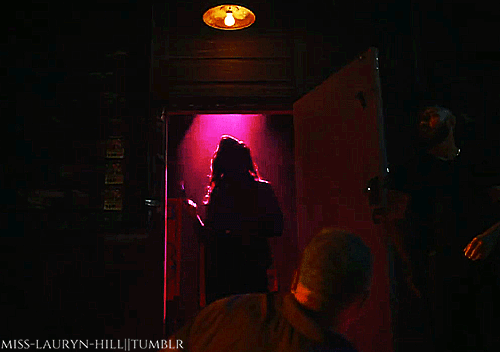






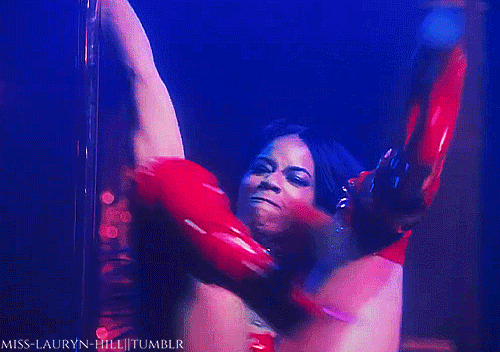



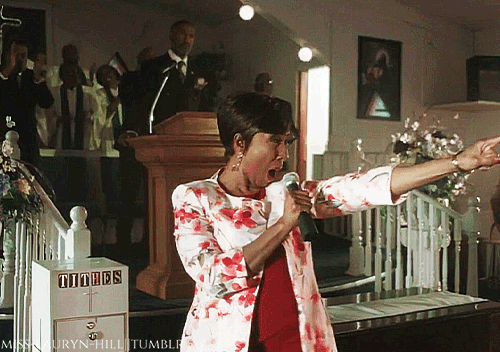
P-VALLEY || PERPETRATIN' (1x01)
#pvalleyedit#p valley#p valley starz#mercedes woodbine#brandee evans#keyshawn harris#shannon thornton#uncle clifford#nicco annan#diamond#tyler lepley#hailey colton#elarica johnson#lil murda#j alphonse nicholson#lil murda x cliff#patrice woodbine#harriet d. foy#my gifs: tv
195 notes
·
View notes
Photo

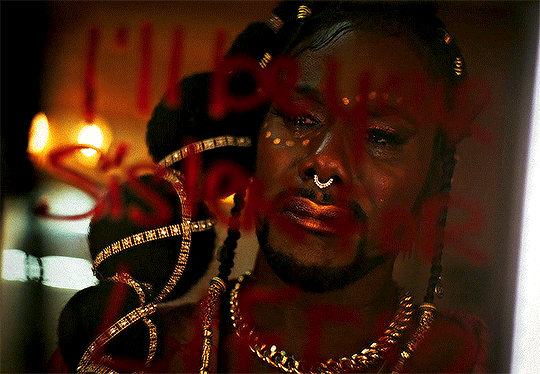

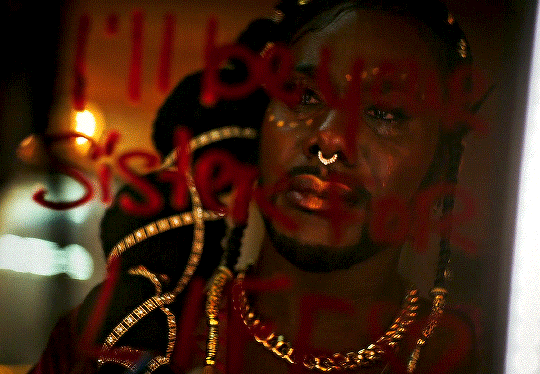
Life is short, but more than that: it's unpredictable. Second chances are rarer than snow in Mississippi. So you go on and you fly now. Fly on away from here, hmm? And I don’t ever wanna see yo’ beautiful face around here.
P-VALLEY S2.09 “Snow”
#and now she's in jail#(silence)#p-valley#p-valley starz#pvalleyedit#p valley starz#p valley#uncle clifford#keyshawn harris#nicco annan#shannon thornton#p-sisterhood#tvedit#dailytvgifs#charactersofcolorsdaily#my
214 notes
·
View notes
Text
Mississippi and Uncle Clifford
She narrated her fairytale origins and now she gets to watch her conclude it. Keyshawn feeling unwanted by Uncle Clifford really tore me up. But she gave her her farewell blessings. And when she ran up to her and fell into her chest and hugged her...
She's such a mother to these girls. A mother many of them, like Keyshawn, have never had the joy to have.
Loved their scene.
#Mississippi#Uncle Clifford#Keyshawn Harris#PValley#P-Valley#P Valley#S2E9: Snow#Shannon Thornton#Nicco Annan#Uncle Clifford is like a fairy godmother#Katori Hall
33 notes
·
View notes
Text
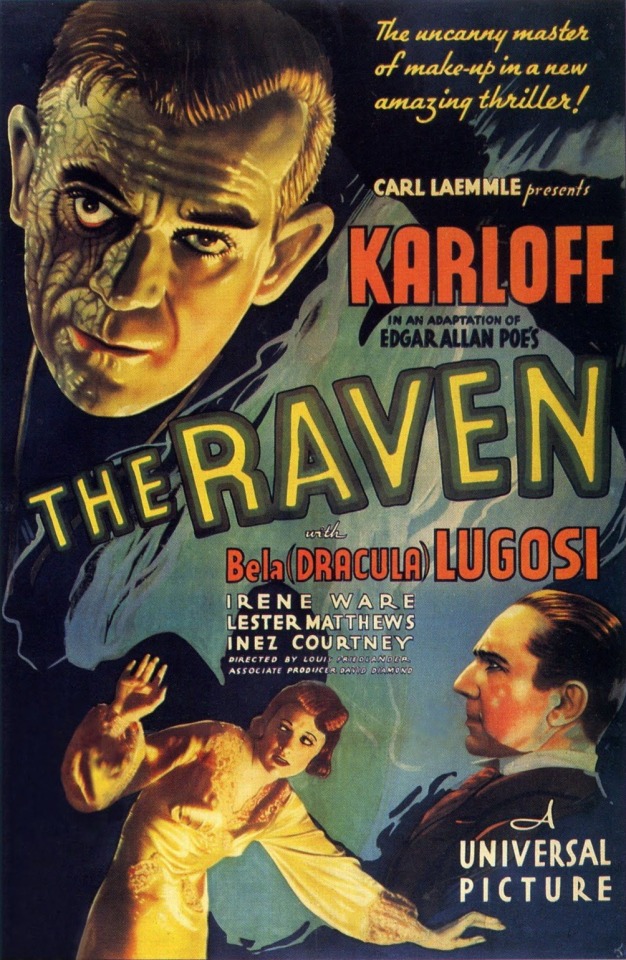



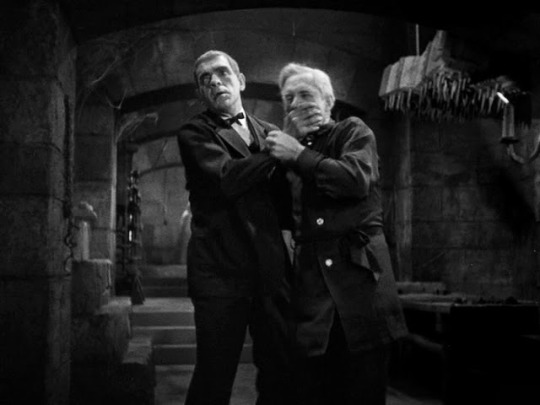
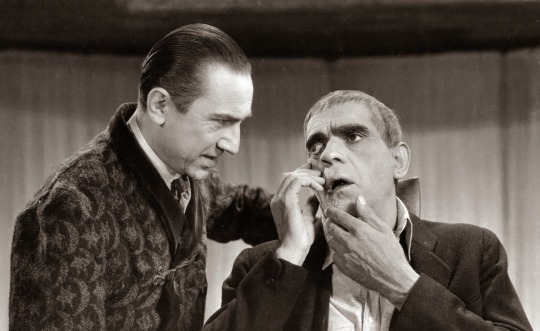

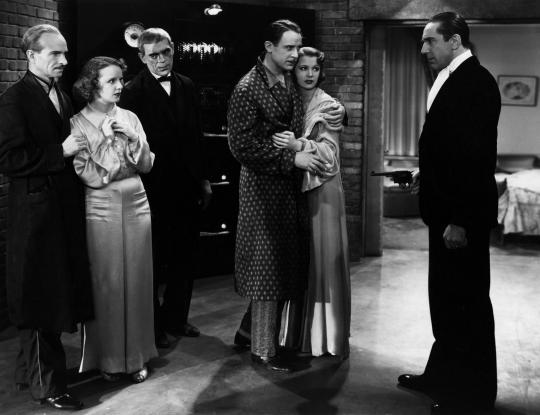
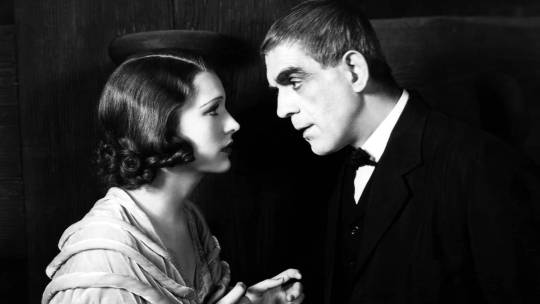
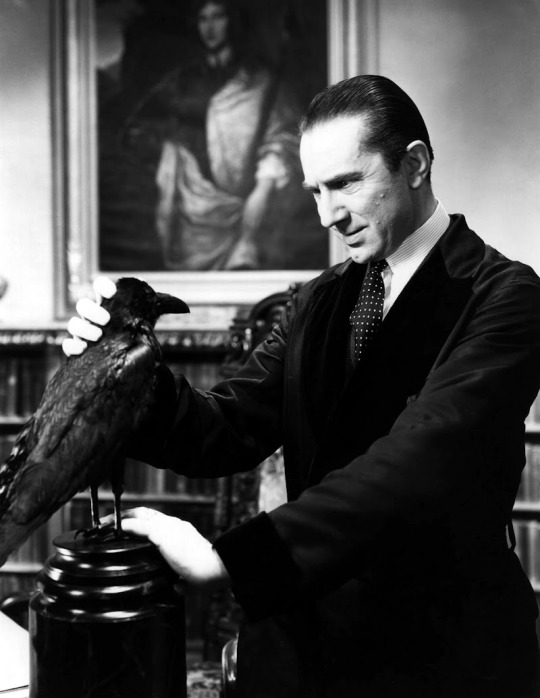
The Raven (1935)
"The raven is my talisman."
"Curious talisman. Bird of ill omen. A symbol of death."
"Death is my talisman, Mr. Chapman. The one indestructible force, the one certain thing in an uncertain universe - death."
#the raven#1935#horror film#american cinema#edgar allan poe#david boehm#guy endore#lew landers#bela lugosi#boris karloff#lester matthews#irene ware#samuel s. hinds#spencer charters#inez courtney#ian wolfe#maidel turner#arthur hoyt#cyril thornton#clifford vaughan#a wonderfully grotesque horror that marries gothic Poe tropes with the scientific nastiness that was then so in vogue#Karloff gets top billing despite the fact that Lugosi is the true lead‚ a reflection on the former's meteoric rise to stardom over the#previous few years. regardless of their place in the credits‚ both are on top form: Lugosi wonderfully intense in his obsessive hate‚#Karloff bringing complex morality as a tweaked version of his sympathetic monster role (monstrous in the eyes of the other characters and e#even himself‚ but human‚ coherent‚ natural; a variation on his contemporary monstrous appearances in the likes of The Mummy‚ The Ghoul‚#Frankenstein). his first appearance post transformation‚ in which the 'ordinary' visitors to Lugosi's home openly express their discomfort#at his presence and instruct him to stand apart‚ is deeply affecting. it makes you wonder how Karloff's own self image fared (the script#has him refer to his remarkable ugliness before Lugosi has done any of his evil doctoring). elsewhere this film features the requisite#comic scenes that this era apparently felt were essential to horror filmmaking (and which so rarely work) and a nauseating coda between the#romantic leads‚ but for the most part this is a solid golden age classic grounded by two horror masters at the height of their powers
19 notes
·
View notes
Text
P VALLEY!! 2X07
*SPOILERS*
been a minute since i did one of these!
LORETAAAA U BETTA SAAANGGGGGGG.
not this wig. p valley…. y’all know damn well wigs in the 60’s ain’t look like this.
baby clifford 😭 i needs to know how the “uncle” came to be.
UNT UNT. absolutely not. heaven can wait. not my graynmuva. bye.
timeout.. you can show all this cleavage in heaven? i ain never seen no angel let me stop playing.
you not offering me shit in joe dirts wig. absolutely not. im just not doing that. talm bout come home 🤣
ion wanna go where they’re letting her do the lords work in that wig cause that alone tells me they fake.
they got earnestine at the pynk in pajamas, bed slippers and a feather boa 😭 JAIL.
ONE TWO BREAK EM’
this the coldest theme song since
golden girls and the proud family. no debate. argue with your breakfast.
🎶 DEE NIGGAS GRAN HARD BUT DEE BITCHES GRAN HAHDUH 🎶
“grandaddy honeycomb” 😂
one thing about autumn knight ne lakeisha savage ne hailey colton.. she gon get cussed tf out deservingly and still be on some fuck shit.
UNT UNT not earnestine. talm bout 6 feet. .6 feet where? in the ground? because when and where 😒 alexa, play crime mob, knuck if you buck.
“what you not gon do is piss in my mouth and call it kool-aid” 😭😭 THE WAAAAAYYYYYY i hollered.
why they got hailey in earnestines wig from the 60’s 😫 JAIL!
OOP.
brandee evans is just 😍
not maybe paint my room.
terricka… you not that damn pregnant.
terricka: “can i drive?”
mercedes: “absolutely the hell not” 🤣
can’t believe teak gone 😭 lawd these flashbacks worst the second time.
“that chicken and dressing clifford made gon take me before that rona do” 😭
“okay chef negro dee” 😫💀 alexa, did we ever figure out if heaven got a ghetto because the waaaaaayyyyyy im on my way.
OOP.
smh.
keyshawn. sweetie.i know it’s hard… but the mf gotta shower at some point ANDDDDT i KNOW you’ve seen diary of a mad black woman and i KNOW you got baby oil. IYKYK.
“lil homicide” 🤣🤦🏾♀️
WAIT HOW DID I MISS THIS THE FRIST TIME 😭 “what if it’s a carbon peroxide leak” unc, please 😂
the chucalissa strangler 🤣
“lil calculator” 😭
cliff: “i thought you said you choose the money over love” oop.
lil murda: “i said i usually do” OOP. listen to these wedding vows. your faves could never.
“im scraight” lie.
cedes: “i know w you ain’t talm bout no weak pull out game in your condition” 😂
terricka: “well how do you think i
got in this condition” 😫💀
not mercedes asking tarricka if she gon make up her mind about keeping this child at the baby preschool graduation 😭
terricka: “well julissa said that taylor said that her mama said that getting an a portion gives you cancer”
Mercedes’: “well julissa, taylor, and her bald headed hoe mama ain’t got two brain cells between the three of them” 😭😭😭😭 the way she put her hand on her hip 😭 katori hall need to be locked up for that line. im crying 🤣🤣🤣🤣🤣🤣💀🤦🏾♀️
this episode is hell 😭
cliff ain’t no reason you being this loud.
“nigga you lready here ain’t it” OOP.
“this gucci 234 B.C.?” 💀 ima fight katori.
ive never seen black men let alone black men in a queen storyline written this well 😭
katori hall really said i know im straight and over qualified HOWEVER,i am a writer so writers, SPECIFICALLY AND ESPECIALLY queer writers im available 5 days a week from 9-5 since yall have no idea what you’re doing. argue with a pamper.
ernestine where in the hell you going.
uncle clifford running 🤣🤣
murda correcting the paramedics 😭😭😭😭 your faves could never!
“whatchu lookin at r. kelly” 😭😭
cedes don’t do this to yourself 😭 you are not patrice 🥺
terricka… 🤦🏾♀️ ugh i hate it here.
“cause im ya mama” 😭
mf’s don’t ever use soap in tv showers.
lamarcus please 🤣
besides… i want to.. feel yo..🫢
this sex scene 🫢🫣 your faves could never.
fill me who?! LAMARCUS 🤭
coach somewhere like damn.... pitter patter.
😭😭😭😭 they’re so in love i can’t.
ion know if patrice a preacher or ms cleo.
ion have a clue in hell what autumn is talking about.
same keyshawn.
watched it for a third time and now i get it…. hopefully she don’t pull that you owe me shit on keyshawn.
#p valley#uncle clifford#lil murda#nicco annan#brandee evans#the pynk#keyshawn#p valley spoilers#shannon thornton
18 notes
·
View notes
Text
The amount of leafs/former leafs and hockey players in general at Mitch’s wedding is making me emotional

Players pictured : JVR, Sandin, Rielly, Brown, Tavares, Bozak, Hyman, Kerfoot, Matthews, Brodie, Muzzin, Liljegren, Bunting, Andersen, Holl, Barrie, Thornton, Ennis, Marleau, Carrick, Martin, Bogosian, & Clifford
61 notes
·
View notes
Text
Riverdale 7x12 Thoughts
This two boys opening, where Archie and Reggie are obviously on a bisexual journey
Leave Julian Blossom in a coma tbh
Especially how Clifford wants to blame Reggie like bro your stupid kid did the thing
I think Archie should sock Clifford Julian-style bc honestly Clifford could not take Archie
Sheriff Keller really is the worst version of himself in season 7 like he is so much worse at Sheriff-ing
Juggy defending Ethel from going back to the sisters like just kiss her already omg
Alice is absolutely insane omg the way she is just like my mother where she acts like she isn't a fucking asshole
Honestly if she was gonna like fake adopt Ethel she should've given her Betty's room
The way every episode is like Archie having to ponder while someone (Reggie, or the gays) are going through it like he is a fool but like I love him anyway but
the storytelling choices
It truly never occurred to Veronica she could break into her own home like?
OMG Mrs. Thornton is so dirty for just reading Archie's poem out loud and then naming him as the author to the whole class
GIRL WHY
Archie looking so pressed while she reads it is the same energy I had when I had to sit through my own play being read at a showcase
KEVIN THINKING IT WAS CLAY WHO WROTE IT
Push him out the window
Additionally, tho, has Archie broken bread with Kevin and Clay over the gay things??
Sports where we're really saying bulldog brother in distress
this stupid comic book thing I need to know what Francis Dupont Werthers is DOING
Am absolutely loving that Ethel is actually getting story ???
Even tho like LET HER LIPS TOUCH JUGGY'S
Or another boy (or girl w/e)
Not Julian tho
That fucker
Honestly Archie should also punch Uncle Frank for being stupid
Betty looked so upset when she thought Archie and Reggie were coming over
Old white men wanting to go back to the old days??? Always a red flag
Clifford is really out here threatening to kill Cheryl as if he did not kills Jason 65 years ago in the future or whatever
Omg my friend had to tell me the song was from South Pacific and now that I know, I'm having a very visceral memory of the time I was in South Pacific (as the only non-singing part tho lmao)
There were a lot of gross men in that bc they could sing (and I mean the actors not the like characters tho...)
The choreo is so much better in Riverdale tho
Even if it involves Kevin
Like could Clay kiss a hot man? Idk
Betty getting a gay ex boyfriend like? Good for her. But like get rid of Kevin
Veronica is so thirsty and I'm so into it except when she's being a predator to out gays (to herself)
Dilton having a huge dick tho is my absolute favorite throwaway detail like yes
HUNGOVER AND STARING AT DILTON
Is this thing where Mrs. Thornton is suddenly like the teacher is bc she's the one who's gonna be accused of communism
Is that happening next week with the outings? Eek
The comic boss dude being like immediately ready to have Ethel draw like yes I love it
He's dead I mean literally you killed him lol
Very pleased we actually get to see Mary working part time at the dress shop
The way they speak to her like she is the one who curates the dresses being sold
I simply don't understand why we have to have Brett Weston Wallace but we don't also get Donna like give us Donna!
Let the boys kiss while they do the dishes
Justice for Ethel!!!
Is Jughead still drinking powdered milk or is that gone now that the milkman is dead
I better see a canon kiss between Betty and Veronica in a future episode or ELSE
THEY ARE IN LOVE
Love only getting Polly in name tho I'm sure we'll have to deal with her at some point this season
Betty is also the ultimate ex-girlfriend
MARY ANDREWS GO AWAY
LET THEM KISS
Okay tho Mary then reading the riot act to Alice, who is completely unbothered lmao
They will legitimately drag anyone to Riverdale but never Katy Keene give us KATY
I heard the good word from the bird
Jughead is wise beyond his years??? Somewhere in there is a memory of the future!
Veronica called Betty ;-;
These boys are going to WRESTLE
Just let them kiss my god
Archie asking Reggie to wear his dad's patch
BOYFRIENDS
Like Reggie knows Archie likes to write poems
Write him a poem
Also are we gonna have to see Archie at the Dark Room lmao
Ugh okay next week is gonna be a full trip I am not ready
8 notes
·
View notes
Video
youtube
Riverdale 7x13 "The Crucible" Promo - HIRAM LODGE ARRIVES IN RIVERDALE / MÄDCHEN AMICK DIRECTS — Panic ensues after Archie and the gang learn that Mrs. Thornton is accused of being a communist. Cheryl’s father Clifford forces her to out gay students at Riverdale High or risk losing power over the Vixens. Meanwhile, Hiram’s surprise arrival to town is quickly met with suspicion by Veronica, and Jughead devises a plan to get around a boycott of comic books. Lili Reinhart, Casey Cott and Vanessa Morgan also star. Mädchen Amick directed the episode written by Janine Salinas Schoenberg & Will Ewing. Original airdate 6/28/2023.
#riverdale#bughead#varchie#choni#cole sprouse#lili reinhart#kj apa#madelaine petsch#camila mendes#ashleigh murray#marisol nichols#madchen amick#archie#archie comics#jughead#beronica#barchie#jarchie#youtube
9 notes
·
View notes
Text
Riverdale 7x13 “The Crucible”
Panic ensues after Archie (KJ Apa) and the gang learn that Mrs. Thornton (guest star Frances Flanagan) is accused of being a communist. Cheryl’s (Madelaine Petsch) father Clifford (guest star Barclay Hope) forces her to out gay students at Riverdale High or risk losing power over the Vixens. Meanwhile, Hiram’s (guest star Mark Consuelos) surprise arrival to town is quickly met with suspicion by Veronica (Camila Mendes), and Jughead (Cole Sprouse) devises a plan to get around a boycott of comic books. Lili Reinhart, Casey Cott and Vanessa Morgan also star.
4 notes
·
View notes
Text
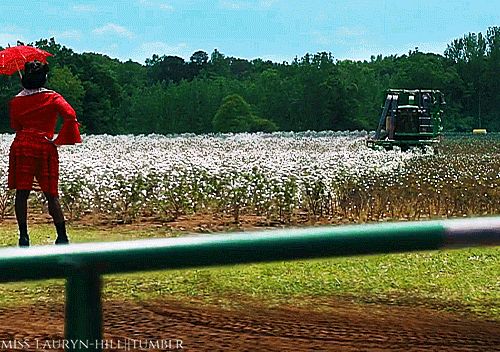



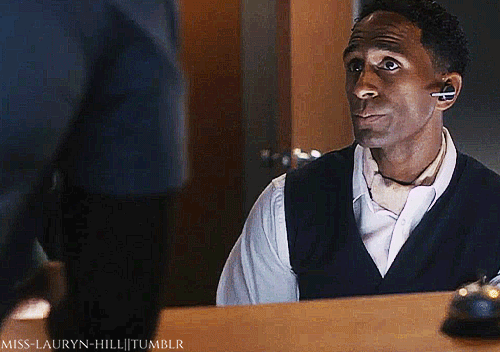
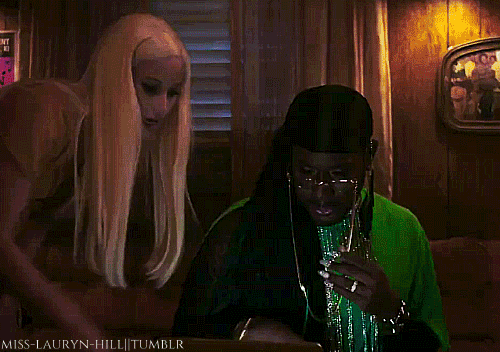



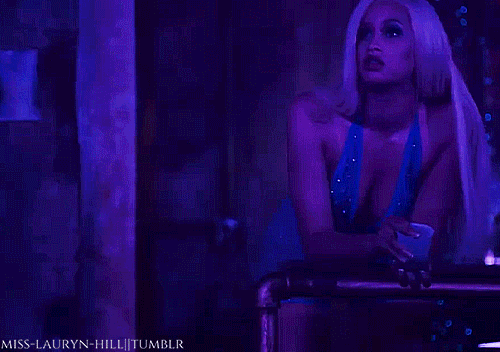




P-VALLEY || HIGHER GROUND (1x03)
#pvalleyedit#p valley#p-valley#p valley starz#keyshawn harris#uncle clifford#mercedes woodbine#patrice woodbine#diamond#lil murda#lil murda x uncle clifford#keyshawn x diamond#shannon thornton#hailey colton#nicco annan#brandee evans#tyler lepley#j. alphonse nicholson#elarica johnson#andre watkins#parker sawyers#my gifs: tv
93 notes
·
View notes
Text
P-Valley season 4 release date: Who will be in it?

For an extended period, the viewers of P-Valley have been eagerly awaiting the announcement of the renewal of the third series. Since the end of the second season, show fans have been eager to hear about its future.
You are in the right place if you want to know more about this incredible drama.
We have already discussed the P Valley Season 3 renewal, but we are eager to discuss the announcement for the fourth season.
You eagerly await the news about the release date, the status of the show, the cast, the plot and other details. Read the article to learn more about the series.
P-Valley Season 4, Renewed or Cancelled?
Many people are interested in learning more about this series. Fans have been asking questions about the show's fourth season since the third was confirmed. You should know that the showrunner hasn't confirmed the status of the 4th season P-Valley season 4.
There aren't any details about the show's future because it was only recently that the release of a third season of the TV series was confirmed. We can't make any comments on this matter without proper information.
P-Valley 4th Season Release Date:
What is the release date?
We can't confirm the exact date until we have confirmation. The showrunner hasn't provided any information about the show. Wait until the third season is guaranteed.
If a third season of the series is released, we can expect P-Valley Season 4 to be released in 2025 if the third season is released. We can expect P Valley season 4 in 2025.
The official has not confirmed this release date, but our prediction for the show
P-Valley season 4 cast:
Who will it be?
Many people are interested in the cast. This section is dedicated to the form. We know the P-Valley cast holds a special place in viewers' hearts.
Fans of P-Valley can expect to see all of the main characters in the show if there is a fourth season. It is rare for the creators of the show to have no characters in the show.
Brandee Evans is Mercedes Woodbine
Nicco Annan in the role of Uncle Clifford Sayles
Shannon Thornton in Miss Mississippi/Keyshawn Harris
Skyler Joy as Gidget
J Alphonse Nicholson, LaMarques/Lil Murda
Parker Sawyers is Andre Watkins
Harriet D. F. as Patrice Woodbine
Dan J Johnson in the role of Corbin Kyle
Tyler Lepley is Diamond
Big L as Morocco Omari
Dominic DeVore is Duffy
Jordan M. Cox as Derrick Wright
Psalms Salazar Whisper
There could be other characters added to the show. Many people, even though officials haven't confirmed this, believe that this is true. We're waiting for an official to comment.
P-Valley season 4 plot:
What will it be about?
Please be patient while we talk about the fourth episode of the series.
The fourth season of the weekend series will only be revealed after the release date of the third part.
P-Valley Season 4 Trailer
Many people are curious about the official trailer of the second film. Many of you are waiting eagerly to learn the details. We don't yet have any official information on the trailer.
The reason is that the show hasn't confirmed anything about the following season. We don't know anything about the trailer yet, but we will let you know if any updates are made. Watch the official trailer for the first season.
Where can I watch the show?
The series can only be viewed on Hulu. You can watch the series on the streaming platform if you haven't done so yet. You will need to subscribe to the forum to watch the anime series.
Comment below or visit our site with any questions about the shows.
Final Verdict
Since the first season's release, P Valley has been a highly anticipated show. Today's article will discuss how many people have waited to hear about the show's renewal. Recent news has shown people's excitement about the P-Valley renewal announcement. There is no information on the renewal statement.
What do you think of this article? This article is for all P-Valley fans. I'm sure you have questions and are interested in the show. This article is a pleasure to write for you. Please share this article with a friend who enjoys dramas and inform them about the future of their favourite show.
2 notes
·
View notes
Text
"King’s administration, however, had not shown any sign of bending much in the CPR’s direction. Indeed, his government implemented
Borden’s railway legislation, passing the Canadian National Railways
Act of 1919, and appointed an outstanding executive, Sir Henry Thornton, to the helm of the CNR in 1922. Thornton was a U.S.-born railway executive and engineer by background who had moved up the corporate hierarchy of the Pennsylvania Railroad before taking a general manager’s position with the Great Eastern Railway in England, at the time the world’s largest commuter system. After the outbreak of war, Thornton’s technical knowledge was drawn upon in the British war effort as he was cast into the role of inspector-general for the British Expeditionary Forces and made “responsible for operation of the whole intricate system upon which the existence of the British line depended.” Embracing advanced views on unions and labour relations, Thornton was respected by Great Eastern Railway employees and was a personal friend of J.H. Thomas, a major figure within Britain’s national railway union. It was Thomas who mentioned the CNR position to Thornton – a position that had opened up following the resignation of D.B. Hanna, who resigned in protest over “political interference” in CNR affairs exercised by the recently elected Liberal administration of Mackenzie King. Knighted for his war services, the affable
Thornton had gained a reputation as a railway “superman,” though his position with the Great Eastern had been extinguished after the government passed legislation to reorganize the British railway system. Thornton was quick to charm the Canadian public as well as CNR employees. Thornton “has quite won the hearts of all who have met him,” exclaimed Flavelle. More troubling to Flavelle and moderate progressives such as Dafoe, however, were Mackenzie King’s blatant political appointments to the CNR board. This was a departure from Borden’s ideal of nonpartisan, businesslike operation. Nonetheless, with Thornton at the helm, the CNR had behind it a power of incalculable importance: popular opinion.
Beatty was quick to see public relations as the most significant challenge facing the CPR. In 1923, encouraged by Beatty’s recent public pronouncements, Lord Atholstan commenced his “Whisper of Death” campaign in the Montreal Star, which forecast an oncoming deluge resulting from a mounting national debt, made intolerable by
costs associated with the CNR. Beatty considered Thornton nothing more than a “showman,” and sought to meet his challenge and correct “political misrepresentation” about the railways through an institutional advertising campaign. (Thornton, for his part, considered Beatty “a lawyer [and] not a railway man.” ) Indicative of this public relations drive, Dafoe reported in the summer of 1925 that
“unfair competition invariably comes up” in discussions with high CPR officials; “[t]hey hope for the Shaughnessy plan or a merger.” In April, Clifford Sifton reported: “I do not think the Canadian Pacific has ever been as active in propaganda as it is now. Their intrigues and efforts to influence official opinion are in evidence everywhere.” Sifton asked Dafoe to have the Winnipeg Free Press “declare war on the scheme and fight it out.”
This drive had its effect in Ottawa, where a Senate committee was established to investigate the railway question in 1925. At the committee’s closed-door hearings, Beatty and Sir Herbert Holt presented cases for railway amalgamation so similar that a summary of the proceedings described their presentations as one position. The Senate proved particularly responsive to CPR influence, and the committee’s report presented an opinion generally in line with Beatty’s case, which Beatty himself would reference in arguing for railway unification in the future. Beatty and Holt, as we have seen, met with King the same summer to discuss railway policy, and Beatty continued to press King to leave the door open for railway unification later in the year. But the political bagmen who inhabited the Senate found it easier to embrace railway consolidation than the MPs who counted on popular support in their constituencies.
This was somewhat stifling to the aspirations of Beatty and his moneyed allies. With neither major political party embracing his position on the railway question, Beatty remained “neutral” in the 1926 federal election, preferring to support favoured individuals in both major parties. While Beatty finessed his way around Ottawa, much of the railway battle was being waged in direct business competition, made more lucrative by the boom at the end of the 1920s as the two companies engaged in competition through line extensions, hotel construction, expansion of shipping fleets, and improvements in commuter services. While Beatty advocated consolidation of the two competing systems under private ownership, economic expansion during the 1920s made competition a viable option. Indeed, Beatty reported that $353,346,450 in dividend payments were distributed to common and preferred shareholders during the period from 1918 to 1930, representing 85 per cent of the company’s total earnings “after deducting fixed charges and pension fund appropriations.”
Thornton, meanwhile, modernized the CNR and emerged as a national icon of sorts, emblematic of the possibilities of public enterprise and cooperation between the state, capital, and labour, culminating in Thornton’s address at the American Federation of Labor’s international convention in 1929 in Toronto, where Thornton proclaimed the beginning of “a new labor era.” The “very particular conjunctures of context, character, and circumstance” that underpinned Thornton’s rise, as Allen Seager has observed, disintegrated with the arrival of the Great Depression. Thornton would be one of its first and most public victims, a public sacrifice encouraged by Beatty as he moved even deeper into political activism.
The Duff Commission and “the Tragedy of Henry Thornton”
Meighen, Roger Graham has written, “was not spared the intrigues of
the Montreal tycoons” as talk that R.B. Bennett would be his successor emerged in early 1926; Bennett was “known to hold more ‘businesslike’ opinions about railway matters” than Meighen, whom Bennett once famously described as “the gramophone of Mackenzie and Mann.” Bennett’s election as leader of the Conservative Party in 1927 was an encouraging sign and a small victory for Beatty and St James Street. They respected the independently wealthy Bennett, believing him to be above petty politics; they shared his deep sense of loyalty to the British Empire; and they felt assured about his protectionist tariff policies. “St. James Street favours Bennett because of his protectionist policies,” wrote Prime Minister King pessimistically before the 1930 election. King also learned that “Beatty was favourable to Bennett’s views.” The list of Montreal donors to Bennett’s campaign, observed historian Larry Glassford, “read like a Who’s Who of the Montreal financial and industrial establishment.”
Formerly the chief western solicitor of the CPR and a major shareholder in the Royal Bank, Bennett’s immersion in business and his history with the CPR certainly helped to make him a more reliable candidate for wealthy Montreal residents – but on the campaign trail such connections were a potential liability. With his proclamation “Amalgamation never, competition ever” in a campaign speech, Bennett sounded publicly his independence from Beatty in an attempt to assure western voters that he would not cede a railway monopoly to the CPR. Popular appeal again seemed to trump Beatty’s long-term goals. The seeds of future conflict between Bennett and Beatty were planted even before the electoral triumph of the Bennett Conservatives in 1930.
Canada had more railway mileage per capita than any other nation
by the 1930s. The financial strain of maintaining two competing national lines had seemingly resolved itself during the boom years of
the late 1920s, only to reemerge as a sudden crisis once the economic slump set in. The financial position of the CPR worsened: in the first half of 1931, the CPR reduced dividend payments and soon after suspended payments altogether. Worse still was the position of the CNR, which was already weighed down by an unwieldy capital structure that included old debts accumulated by Mackenzie and Mann and the Grand Trunk. Company earnings fell by $46,249,000, and Thornton attempted cost-cutting measures without implementing wholesale layoffs.
Philosophically opposed to public enterprise, Bennett viewed Thornton as a creature of the King government; and he supported a campaign that conflated Thornton’s lavish private lifestyle with his management of the CNR. While in London, England, in October 1930, Prime Minister Bennett wrote his minister of railways and canals, R.J. Manion, about the shopping activities of Thornton’s wife:
President’s wife here purchasing furniture. President cabled her improvements would cost eighteen thousand dollars and she must spend less for furniture. She says building requires improvements. Whatever action you take entirely satisfactory. I was only desirous [to] communicate casual information.
The CNR directors had approved funds for Lady Thornton to furnish
their Pine Avenue home “in a manner appropriate for the residence of
a president.” But, having received this “casual information” from Bennett, Manion reneged on the agreement. Thereupon Sir Henry perceived that “a concerted plot to ruin his personal reputation” was in the works. He pressed Manion in December to honour the agreement that $20,000 in CNR funds be made available for renovations to his house, explaining that he was “very hard up, stock losses, etc.” Manion did not bend and described his reply to Bennett:
I told him that if the case came up in the House I wanted to be able to say that we had nothing to do with the matter – that the whole arrangement had been made under the previous administration.
Thornton would serve as a sacrificial lamb for the supposed improprieties of the King administration.
The following year the Railway Committee of the House of Commons provided new opportunities to undermine Thornton’s public reputation and associate him with the supposedly spendthrift ways of the Liberals. Manion, R.B. Hanson of New Brunswick, and Dr Peter McGibbon, MP for Muskoka-Ontario, were among the most active Conservative members to tar Thornton in the House, citing imprudent company expenditures on hotels, suggesting (falsely) exorbitant company salaries, and drawing attention to Thornton’s salary and personal expense account. Though Beatty admitted the unfairness of some of the attacks levelled against Thornton, he also recognized new political opportunities on the horizon.
Upon Beatty’s suggestion, a beleaguered Thornton called for the
formation of a royal commission to study the railway question. And though Beatty and Holt complained about delays in getting the commission established, the Duff Commission was finally formed in November. Before the commencement of the commission’s hearings, Beatty was “very hopeful that something constructive” could be achieved and lauded its personnel as “really outstanding.” Chaired by Supreme Court Judge Lyman Duff, the commission included six other prominent figures with weighty business – and some academic – credentials: Joseph Flavelle; Beaudry Leman of Montreal, general manager of the Banque Canadienne Nationale and president of the Canadian Bankers’ Association; U.S. railway executive Leonor Fresnel Loree, president of the Delaware and Hudson Railway Company; Lord Ashfield, head of London’s underground system, the Metropolitan Railways; Walter Charles Murray, president of the University of Saskatchewan; and the Shediac, New Brunswick, physician John Clarence Webster, a respected Conservative, museum patron, and personal friend of Howard P. Robinson.
From his office in Winnipeg, Dafoe reflected upon the significance of the commission’s establishment. “Perhaps I am getting too suspicious in my old age,” he wrote Free Press correspondent John A. Stevenson
but I have a most decided ‘hunch’ that this Commission was appointed to do a particular chore, and that with perhaps two exceptions its members know what the chore is to be. I think the linked money powers in Canada and the United States, with all their subordinate and associate interests, have decided that the time is opportune to oblige Canada to remove her desire to own and operate her own railways.
Dafoe believed that – as part of this plot to gut the CNR – the same tactic deployed in England to dislodge the Labour government might be deployed in Canada: “National Government.”
Had Dafoe become “too suspicious” in old age? Not entirely. The
ever-domineering Bennett had taken a personal interest in the formation of the commission and appeared to be in closer contact with St James Street than the responsible minister, Manion. Winnipeg Free Press correspondent Grant Dexter reported on 15 November that Manion was in “complete ignorance” about the commission’s personnel, but two weeks earlier a private memorandum written by Floyd Chalmers of the Financial Post revealed that Sir Herbert Holt was up to date on recent developments in the selection of commission personnel. “I want to take back anything about believing that amalgamation is off,”
wrote Dexter.
Meanwhile, Thornton’s experience at the hands of the Conservatives had led him to an about-face: in a meeting with Dafoe at Winnipeg’s Fort Garry Hotel on 12 October, Thornton lamented that he had lost faith in the ideal of public enterprise – the CNR, in the interest of its own survival, would have to come under the control of some form of unified management along with the CPR. He told Dafoe that he and Beatty had been working on such a plan together, a fact later confirmed by Lady Thornton. After Thornton’s death, his biographer, D’Arcy Marsh, would write (in 1934) that Thornton had been made “constitutionally incapable” of opposing Beatty, and Dexter believed that Thornton had sold out to Beatty to save his job. Dafoe, Marsh, and Dexter were overly cynical in assessing Thornton’s actions. And though Dafoe’s suspicions had some basis, he greatly exaggerated the level of coordination between Bennett and Beatty.
The proceedings of the Duff Commission commenced on 4 December 1931 with the commissioners interviewing Sir Henry Thornton in a session closed to the public – as was the testimony of all senior railway and government officials. Thornton proposed the establishment of a ten-person “superboard,” consisting of the presidents of each railway company, two Liberal, two Conservative, and two Progressive representatives, a representative of labour, and a representative of the minister of railways and canals. Though Dafoe and others, not privy to his testimony at the time, might have considered it something of a sellout, such judgments are overly harsh. Thornton believed the board, which would oversee both railways and enforce cooperation, would be able to conciliate various interest groups, and his plan thus attempted to establish a mechanism whereby a form of democratic control over the management of the country’s railways would obtain.
It was Thornton’s embrace of the principle of democratic control that set him apart from Beatty – and here Thornton was steadfast. The very goal of exercising democratic control over Canada’s railway systems was thought dubious by commission members, however. Commissioner Loree asked CNR vice-president S.J. Hungerford whether “it be a fair statement to make that a democratic form of government is no competent agency to carry on the railroad business?” To Hungerford’s assertion that “[w]e are seeking to do it,” Loree replied: “But are they doing it? The records do not show they are, because they are going behind every year.”
With the questioning at times threatening to transgress the line of
gentlemanly decorum, Thornton stressed that management of the CNR was a matter of public policy and thus did not necessarily need to justify itself on the basis of profits and losses. In response to a statement by Joseph Flavelle that such an enterprise should not be maintained, Thornton asserted that it was “a matter for the Canadian people to decide.” Beatty appeared before the commission the next day and presented a case that was ideologically much easier for the commissioners to appreciate.
If, on one hand, the privately owned system finds it is unable to maintain its credit in an unequal struggle with the long purse of the state,” Beatty said before the commission, “a grave injustice will be done to the shareholders of a corporation which has fulfilled its fifty-year old contract with the nation, and which has made its full contribution to the upbuilding [ sic ] of the Dominion. Such a consummation would cause most serious injury to the reputation of this young country as a field for private capital.
The cases of Beatty and Thornton differed at a fundamental level, centring not only on the appropriate role of the state in the nation’s economic life but on the appropriate role of public opinion in shaping economic policy. Beatty opposed government intervention, except in a helping role to private capital – steamship subsidies and protective tariffs, for example (which the CPR benefited from). He was also generally dismissive of popular opinion. Thornton, he believed, had succeeded by “showmanship” and “mob appeals.” The deluded public, in Beatty’s estimation, deserved only a very limited role in deciding public policy, and, as we shall see, he turned to “educational” work to address this issue. Thornton, by contrast, accepted some degree of “political” interference in economic affairs as inevitable under any democratic government. “After all in any form of popular government it must be accepted as axiomatic that the business of government is politics and,” Thornton stated before the commission on 4 January 1932, “irrespective of whether one likes it or not, politics is something with which a government must reckon in all its activities.”
Though commission members disliked the idea of public influence over railway management, a view that would be plainly expressed in their report, they were at least equally concerned with the prospect
of leaving the nation’s railways in the hands of a private monopoly.
Beatty proposed a “unification” plan of the two systems under CPR
management that would maintain separate ownership: CPR personnel would act as trustees of the government’s property. Commissioners Flavelle and Loree expressed concern over the de facto monopoly that Beatty’s plan would create. (Beatty privately dismissed Flavelle’s business philosophy, which stressed the role of competition, as “the Flavelle school of ruthless business brutality.” ) Commissioner Webster was somewhat less worried about monopoly.
“The fear of monopoly did not terrify me, as it so strongly impressed Sir Joseph,” he wrote to Meighen in November 1932, “nor did I shrink from submitting the responsibility of conducting so great an undertaking to a single management.” Beatty did not try to hide the monopoly implications of his plan but rather defended the principle of monopoly itself, arguing that “some of the most efficient, most widely administered and most publicspirited public corporations on this continent are monopolies.” “They are in the main,” he continued, “successful, efficient and progressive, and they are administered by men of high character and great ability.” For Beatty, who believed business enterprise to be a form of public service, the most important factor was the quality of business leadership. Since management would be composed of “business statesmen of the highest type,” he did not believe the “question of autocracy” could arise.
Beatty appeared before the commission again on 19 February and
presented a memorandum outlining the benefits of unification, in which he reiterated the need to impose businesslike management over the country’s railways. Asked by commissioner Loree whether a board of directors consisting of CPR and government representatives might successfully manage a unified system, Beatty foresaw two problems. First, the government would be exercising too much active influence in railway matters; second, government involvement would render “doubtful the type [of individuals] that would be selected for appointment to the Board.” Such an arrangement could only be successful if independence from the government were established; Beatty suggested an independent tribunal might select government representatives from “the Canadian Bankers Association, the Canadian Chamber of Commerce and a Judge of the Supreme Court” and be “certain to get the type of men whose ability would justify the selection.”
Beatty’s formulations were latently elitist and antidemocratic: “quality” leadership was presumed to reside in the upper echelons of the business community, and management of the railway system could not be entrusted to any other segment of the population – indeed, it was necessary to insulate such leadership from the pressures of popular opinion. According to Beatty’s beliefs, efficient
railway policy required that it not be formulated outside the meritocratic order that decided success or failure in private enterprise; “political” interference was unacceptable. Beatty was not unique in this mindset; the commission’s report echoed similar sentiments.
The commission’s proceedings prefaced Thornton’s final fall from grace in public life. Thornton had been divorced and quickly remarried (to a much younger woman) several years earlier, and he was known to enjoy nightlife. These were not important problems while the CNR was operating at a profit, but once that changed, Thornton’s personal life was conflated with his management style to devastating effect. He managed the railway the way he lived, his detractors claimed. Called once again before the House of Commons to testify, the gentlemanly decorum of the commission hearings evaporated, Thornton was subjected to a verbal assault by R.B. Hanson. Thornton’s public tarring eroded his political support in the House of Commons. Teetotaller, opposition leader, and political acrobat Mackenzie King acquiesced to this portrayal of Thornton, writing in his diary: “The truth is Thornton has not measured up of late, has drunk too much – far too self-indulgent.” Thornton would later write to King that he had departed from Ottawa under the auspices of a “reign of terror,” “always ‘shadowed’ by a detective.” “The Canadian Pacific Ry. has … exercised a sinister influence in Canadian politics – It has never hesitated at bribing + corruption in all its forms and it represents the worst type of predatory capitalism,” Thornton wrote to King the following day. “It has ruined men.” Undoubtedly, Thornton counted himself among the “ruined men”: “I feel fairly certain I might have remained where I was had I cared to go along with Beatty.”
- Don Nerbas, Dominion of Capital: The Politics of Big Business and the Crisis of the Canadian Bourgeoisie, 1914-1947. University of Toronto Press, 2013. p. 125-133.
#canadian pacific railways#canadian national railways#railway construction#track laying#train stations#railway capitalism#great depression in canada#the pressures of the great depression#capitalism in crisis#capitalism in canada#railway company#royal commission#canadian politics#canadian elite#canadian history#dominion of capital#mackenzie king#r. b. bennett
0 notes
Text
Il grande attore, sceneggiatore, regista e scrittore americano, interprete di film quali I giorni del cielo di Terrence Malick, Baby Boom di Charles Shyer, Fiori d’acciaio di Herbert Ross, Il rapporto Pelican di Alan J. Pakula, La promessa di Sean Penn e molti altri, avrebbe ottant’anni.
Nato a Fort Sheridan - Illinois - nel 1943 (è morto a Midway - nel Kentucky - nel luglio 2017 a settantatré anni), Sam Rogers Shepard - meglio noto come Sam Shepard -, è stato un attore, commediografo, scrittore, sceneggiatore e regista.
Alla fine degli anni Sessanta è batterista del gruppo rock Holy Modal Rounders.
Nel 1979 ha vinto il premio Pulitzer per la commedia Il bambino sepolto.
Aveva esordito come sceneggiatore alle fine degli anni Sessanta ottenendo ben presto importanti collaborazioni. Dopo aver lavorato con Robert Frank ed Allen Ginsberg per Me and My Brother (1969), collabora alle sceneggiature di Zabriskie Point (1970) di Michelangelo Antonioni, Renaldo e Clara (1978) di Bob Dylan, Paris, Texas (1984) di Wim Wenders, Follia d’amore (1985) di Robert Altman, Inganni pericolosi (1998) di Matthew Warchus, See You in My Dreams (2004) di Graeme Clifford, Non bussare alla mia porta (2005) di W. Wenders, ed altri film.
Continuando a scrivere anche per il teatro, dopo aver interpretato da attore il drammatico I giorni del cielo (1978) di Terrence Malick - con un giovane Richard Gere ad inizio carriera e Brooke Adams - intraprende una lunga carriera cinematografica, alternando ruoli da protagonista e da comprimario.
Fra i film da lui interpretati ricordiamo Frances (1982) di Graeme Clifford, con Jessica Lange, Uomini veri (1983) di Philip Kaufman, - con cui ottiene una nomination all’Oscar come Attore non Protagonista -, con Ed Harris e Dennis Quaid, Country (1984) di Richard Pearce, Crimini del cuore (1986) di Bruce Beresford, con Diane Keaton, J. Lange e Sissy Spacek e la commedia Baby Boom (1987) di Charles Shyer, ancora con D. Keaton, Fiori d’acciaio (1989) di Herbert Ross, con Shirley MacLaine, una giovane Julia Roberts, Olympia Dukakis, Cuore di tuono (1992) di Michael Apted, Il rapporto Pelican (1993), tratto dall’omonimo libro di John Grisham e con J. Roberts e Denzel Washington, La neve cade sui cedri (1998) di Scott Hicks, Passione ribelle (2000) di Billy Bob Thornton, La promessa (2001) di Sean Penn, con Jack Nicholson e Robin Wright, Black Hawk Down (2001) di Ridley Scott, Le pagine della nostra vita (2004) di Nick Cassavetes, tratto dal romanzo omonimo di Nicholas Sparks, L’assassinio di Jesse James per mano del codardo Robert
Ford (2007) di Andrew Dominik, con Brad Pitt, Brothers (2009) di Jim Sheridan, Darling Companion di Lawrence Kasdan, con D. Keaton e Kevin Kline, Ithaca (2015) di Meg Ryan, In Dubious Battle - Il coraggio degli ultimi (2016) James Franco, Never Here (2017) di Camille Thorman.
Ha scritto e diretto Far North- Estremo Nord (1988), con Jessica Lange e Silent Tongue (1993), con Richard Harris e Alan Bates.
Come scrittore ha pubblicato vari libri, fra cui ricordiamo Hawk moon (1983) - La luna del falco, Feltrinelli, 1987-, Motel Cronicles (1983) - Feltrinelli, 1985 -, Attraverso il paradiso (Cruising Paradise, 1996) - Feltrinelli 1998 -, Il grande sogno (Great Dream of Heaven, 2003) - Feltrinelli, 2005 -, Diario del rolling thunder. Dylan e la tournée del 1975 (Rolling Thunder Logbook, 2004) - Cooper,2005 -, Diario di lavorazione (Day out of Days: Stories, 2004) - Playground, 2016 -, Quello di dentro (The One Inside, 2017), con prefazione di Patti Smith - La nave di Teseo, 2018 -. Spiare la prima persona (Spy of the First Person, 2017) - La nave di Teseo, 2020.
Nel 2016 il Saggiatore (Milano) ha pubblicato il suo Motel Chronicles e, l’anno seguente, Il grande sogno, (2017), nella collana “La Cultura”.
0 notes
Link
0 notes